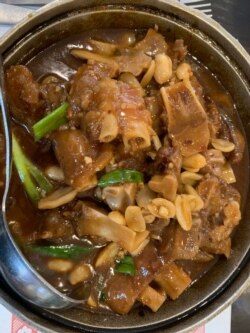Canada’s decision to reopen its borders to international visitors is encouraging tourism operators in tiny Prince Edward Island, who are hoping the Asian visitors who have become a mainstay of the province’s economy will soon be back.
Best known in Asia as the setting for the “Anne of Green Gables” novels, this province in Atlantic Canada has long been a magnet for visitors — especially from Japan and more recently China — who come to visit the house where the century-old children’s stories are set.
But travel restrictions imposed by the federal government last year in response to the coronavirus pandemic brought all of that screeching to a halt, reducing overall visits to the island by 70% compared with pre-pandemic levels, according to provincial officials.
Prospects brightened this month when Prime Minister Justin Trudeau announced that fully vaccinated Americans would be able to enter Canada for nonessential travel beginning on August 9, and that visitors from other countries would be admitted as of September 7.
That is good news to George Campbell, who operates a museum in the real-life house where author L.M. Montgomery set the early 20th-century stories that have more recently been made into a movie and a Netflix series. Fans of “Green Gables” from China are an important part of his clientele.
“We are eager to have Chinese tourists visit our province and my museum,” Campbell told VOA ahead of a reporter’s visit to the white clapboard house with its iconic green gables. “It is wonderful that they will travel so far to come and visit.”
While it was Green Gables that put Prince Edward Island on the map for many Asians, enterprising islanders have been quick to offer the visitors other ways to spend their money.
According to the federally funded Canadian Broadcasting Corp., bus tours have been established that cater to Chinese tourists, and golf courses have begun offering Motion Pay, a payment system favored by many Chinese.
Wang Shoutao, a spokesperson for the Chinese Embassy in Ottawa, told VOA that visitors from his country have been attracted to other parts of Canada as well.
“In recent years, tourism exchanges between China and Canada have been developing, and Canada has become a very important destination for Chinese tourists,” he said without addressing recent friction between the two countries over the detention of two Canadian citizens in China.
A formal statement provided by Wang said, “Friendship between the peoples holds the key to sound state-to-state relations, and heart-to-heart communication contributes to deeper friendship.”
For Prince Edward Island, the personal connections forged by tourism have led to more permanent links. Until it was supplanted by India in 2017, China had been the largest source of new immigrants settling in the province for a decade.
The National Post newspaper reports that 2,400 Chinese newcomers arrived in 2006-09, making a visible impact in a province of 160,000 people whose main industries are tourism, potato farming and fishing.
The province, located at the mouth of the St. Lawrence River, is also looking for new business opportunities with China, according to Peter McKenna, a professor at the University of Prince Edward Island (UPEI).
“I would say that the province is interested in examining possibilities and the potential for greater linkages with China,” McKenna told VOA. “One of those areas would be in the fishing or the seafood sector. I think there are opportunities there for companies in PEI and Atlantic Canada in general to develop a market in China.”
Jeffrey Collins, another UPEI professor who works on trade policy for the provincial government, agreed that trade with China is important to the island but said it is still far overshadowed by the exchange of goods and services with the United States.
“PEI's export growth to China, as impressive as it has been in recent years, is very much based on a handful of products, chiefly lobster,” he said. While that trade remains “robust despite larger geopolitical tensions,” he noted, “key limitations are in transportation access and need to develop deep business cultural ties with Chinese buyers/consumers.”
While the Asian influx has been a boost to the island’s economy, not everyone in the province’s tightly knit community has been happy to see the growing numbers of what are often described by longtime Atlantic Canadians as the “come-from-away.”
“If anyone in PEI tells you that there is no racism, they’re lying or not aware of what’s going around,” said Satyajit Sen, a policy adviser at the Federation of Prince Edward Island Municipalities. “It exists and you can sense it, especially during the COVID times.”
Sen, who spoke to VOA in a Vietnamese-run coffee shop, said the island’s enviable standard of living, which he also enjoys, cuts both ways when it comes to the small-town mindset.
“It could be a sense of insularity, a sense of island-ness, which is largely a positive, but which can also be a negative if people come from away, which is not a good term to be honest with you.”
Anxiety about outsiders has been heightened during the pandemic, which has infected relatively few people here. Sen said this has led to people vandalizing cars with license plates from outside Prince Edward Island.










